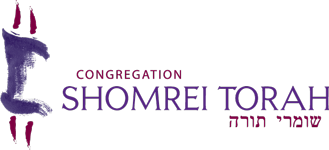Parents
Besides kvelling (untranslatable),the parental involvement in a Bar/Bat Mitzvah service includes:
- Lighting candles on Friday night (for the women of the family, and friends);Candles
- Participating in the handing down of the Torah;
- Having the third aliyah, which involves reciting the Torah blessings;
- Offering a prayer/charge for the Bar/Bat Mitzvah. Guidlines for these Prayers must be followed, please download these Guidelines for the Parental Prayer
Other Honors
Honors are an important part of the Bar/Bat mitzvah service.
Family and friends who are given honors cease to be observers and become
active participants. A variety of opportunities for family and friends exist within the Shabbat morning worship service. Below is a basic guide to Bar/Bat mitzvah honors. Please download this Pulpit Honors Form.
Speaking Honors
Aliyot: An aliyah is the act of being called to the Torah. There are two parts to an aliyah: the blessing before the reading of the Torah and the blessing after the reading of the Torah. Each Bar/Bat Mitzvah has a total of four aliyot. The first two aliyot are for friends and family. The third aliyah is for the parent(s). The fourth aliyah is for the Bar/Bat Mitzvah. To better understand the details of an aliyah, please see “Aliyah Primer” on the bottom of this page. You may find it helpful to copy and share this page with your friends and family who will be participating in this special honor.
Readings:
There are a number of readings in English which can be assigned to family and friends.
Nonspeaking Honors
The ark is opened three times in the service; the Torah is passed down from
generation to generation and other honors include a hagbahah (Torah
lifter), and a g’lilah (Torah dresser).
The Participation of Non-Jews
CST welcomes the participation of non-Jewish family and friends. Non-Jews may participate in appropriate English readings, ark openings, and if they are accompanied by a Jewish spouse they may recite Torah blessings. We strive to make the whole family feel at home during the service. If you have any questions or concerns, please contact
Rabbi Kramer or Rabbi George.
The Involvement of Younger Siblings and Children
Siblings or other young children should be given age-appropriate honors, such as helping to dress the Torah or opening the ark. Siblings may also help in leading
the Motzi Motzi , blessing over the challah at the conclusion of the Kiddush. Siblings over age 13 can be given an aliyah.
Aliyah Primer
Below are the basic fundamentals of being called to the Torah (aliyah), at Congregation
Shomrei Torah. Meaning to “go up” or “ascend,” aliyah also implies a
spiritual ascent. An aliyah is considered to be one of the most sacred privileges in Judaism. Consequently, you must be Jewish and “of age” (i.e. older than 13) to
qualify for an aliyah. Indeed, the service of Bar/Bat Mitzvah is a celebration of a child’s first aliyah. Non-Jewish spouses are welcome to accompany and
participate with their Jewish partner for an aliyah.
Hebrew Name:
Traditionally you would be called to the Torah by your Hebrew name. This includes not only your given name but the name(s) of your father and/or mother.
The formula would thus be:
For men Ya’akov ben Avraham v’Sarah
For women Rachel bat Avraham v’Sarah
Although Hebrew names are the benchmark for this tradition, Yiddish names are also acceptable. If you do not have a Hebrew name, we can use your English name. This could also be a great opportunity to contact our rabbis about acquiring a Hebrew name
Going Up:
When your name is called, approach the bimah (pulpit) from the left of the congregation.
Stand to the right of the Bat/Bar Mitzvah. The Bat/Bar Mitzvah will point to the place in the sefer Torah (scroll) where she or he is reading. Touch that spot with the tzitzit (fringes) of your tallit (prayer shawl) or the corner of your siddur(prayer book) and then, if you like, kiss the tzitzit or the siddur. At this point the Bat/Bar Mitzvah will close the scroll and you will begin the b’rachah (blessing). Some people, while reciting the b’rachah, choose to grasp the two wooden posts of the scroll.
The First Blessing
Below is the blessing recited in Hebrew prior to the reading of the Torah. You should recite the first line, wait for the congregation to respond with the second line, then repeat that second line, and read the rest of the first blessing.Blessing Before Torah Reading Blessing after the Reading of Torah
You begin:
Bar’chu et Adonai hame’vorach.
The congregation responds:
Baruch Adonai ham’vorach l’olam va-ed.
You repeat:
Baruch Adonai ham’vorach l’olam va-ed.
And then you continue:
Baruch Atah Adonai Eloheinu melech ha-olam, asher
bachar banu mikol ha-amim v’natan
lanu et Torahto, Baruch Atah Adonai
Notein ha Torah.
The Concluding
Blessing
Following the chanting of the Torah selection, the concluding b’rachah is offered. Again you will touch the place in the scroll with the fringes of your prayer shawl or the corner of your prayer book and may choose to grasp the posts of the Torah scroll while reciting the blessing: Baruch Atah Adonai Eloheinu melech ha-olam, asher natan lanu Torat emet, V’chayei olam nata b’to cheinu. Baruch Atah Adonai notein ha Torah.Blessing after the Reading of Torah
After the
Concluding Blessing
Following
the concluding b’rachah, you should
move to the Bat/Bar Mitzvah’s left and remain there until the next aliyah is concluded. Then you may return to your seat.
